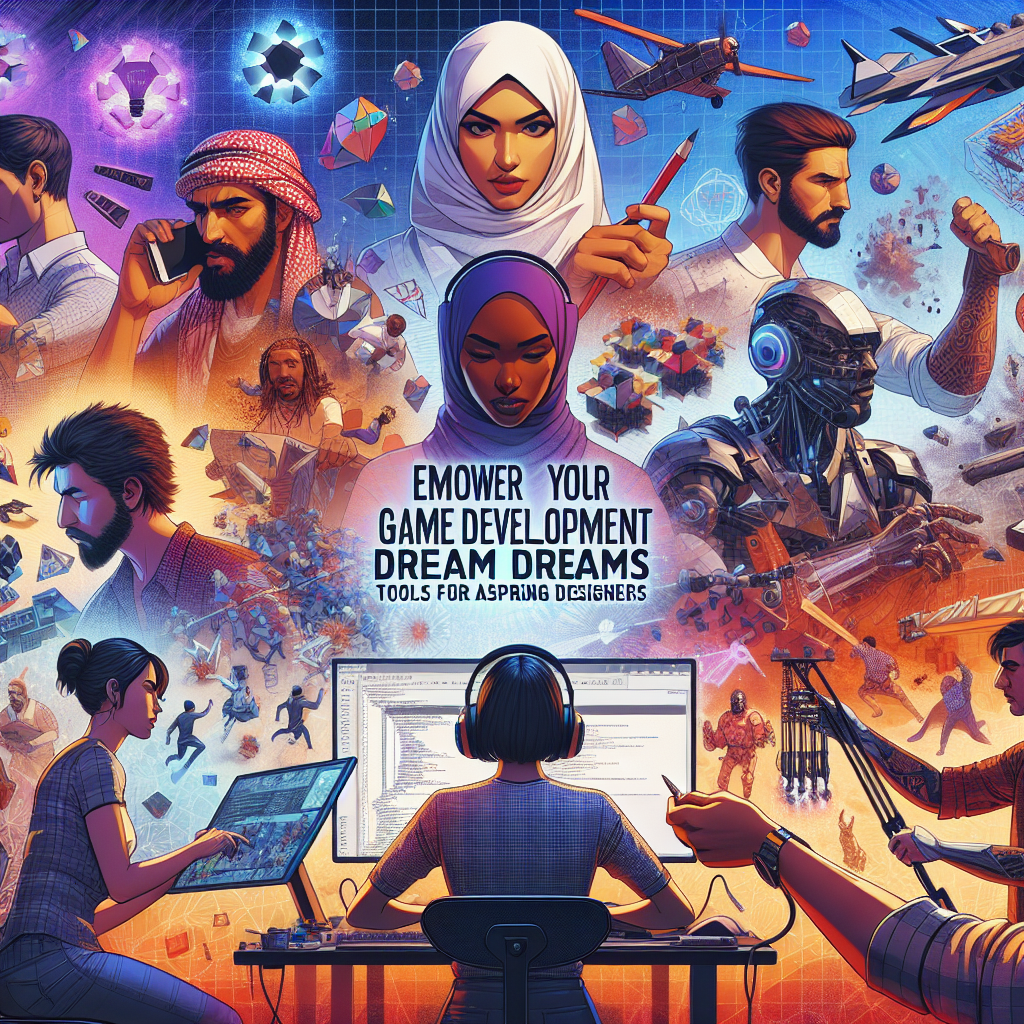Empower Your Game Development Dreams: Tools for Aspiring Designers
In a world where gaming has transcended from mere pastime to a dominant form of entertainment, the realm of game development has witnessed a massive surge in interest. Aspiring designers are eager to transform their innovative ideas into interactive experiences, and fortunately, a plethora of tools is available to facilitate the creative journey from concept to completion. Whether you’re a budding indie developer or a passionate hobbyist, the following tools can empower your game development dreams, allowing you to craft engaging stories and immersive gameplay experiences.
Game Engines: The Backbone of Development
1. Unity
Unity is arguably the most popular game engine in the world, favored for its flexibility, powerful features, and user-friendly interface. It supports both 2D and 3D game development, making it ideal for various genres. With an extensive asset store and a plethora of online tutorials, Unity enables designers to experiment with complex mechanics without needing to start from scratch. Its C# scripting language means that even those with no coding experience can learn and grow.
2. Unreal Engine
Unreal Engine stands out for its stunning graphics capabilities and advanced visual scripting through Blueprints. This makes it an excellent choice for developers aiming to create visually striking AAA games. Unreal is particularly favored by those interested in creating first-person shooters and open-world games. Its robust community provides a wealth of resources, including a comprehensive library of tutorials and documentation.
3. Godot
Godot is an open-source game engine that is gaining popularity among indie developers for its lightweight design and flexibility. Its unique scene system and powerful scripting language (GDScript) allow for quick iteration and prototyping. With a supportive community and an increasing number of tutorials, Godot is an excellent choice for newcomers who prefer a less daunting entry point into game development.
Graphics and Design Tools: Bringing Your Vision to Life
4. Blender
For aspiring 3D artists and animators, Blender is a powerhouse of a tool. This open-source 3D modeling software allows users to create complex models, animations, and textures at no cost. Blender’s versatility means that it can be used for everything from character design to environment creation, making it an invaluable resource for any game developer who aims to produce high-quality assets.
5. Adobe Creative Cloud
Adobe Creative Cloud offers a suite of editing and design tools ideal for game asset creation. Photoshop is perfect for creating textures and 2D graphics, while Illustrator is excellent for vector-based artwork. For animation, After Effects allows designers to create engaging cutscenes and promotional videos. The integration of these tools makes it easier to create polished and professional assets.
Sound and Music Tools: Crafting the Atmosphere
6. FMOD and Wwise
Sound design can make or break a game. FMOD and Wwise are industry-standard tools for implementing audio in games. They allow developers to create dynamic soundscapes and integrate sound effects that respond to in-game events. While they may have a steeper learning curve, the investment in mastering these tools will enhance the auditory experience of your game.
7. Audacity
For those looking for a free solution, Audacity is a fantastic audio editing tool. It allows for recording, editing, and applying effects to sound files, making it an excellent choice for game developers who want to create and fine-tune their audio without breaking the bank.
Collaboration and Project Management Tools
8. Trello and Asana
For aspiring game designers working on team projects or independently managing their workflow, project management tools like Trello and Asana offer solutions for task organization and progress tracking. These platforms help teams to stay synchronized, ensuring that ideas flow seamlessly from conception to execution.
9. GitHub
When it comes to version control, GitHub is a necessary tool for any game developer. It allows for collaborative coding, tracking changes, and managing different versions of your project. For those who aspire to work on larger teams, understanding how to leverage GitHub will be instrumental in facilitating smooth teamwork.
Learning Resources: Never Stop Growing
The vastness of game development can feel intimidating, but numerous learning resources are available to help you along your journey. Websites like Coursera, Udemy, and YouTube offer courses ranging from beginner to advanced levels, covering various aspects of game development, from coding to art design.
Conclusion: Transforming Dreams into Reality
Embarking on the journey of game development is a thrilling adventure filled with creativity, innovation, and challenge. By harnessing the power of these tools, aspiring designers can turn their visions into reality, creating games that engage and inspire the world. Remember, every great developer started somewhere – so dive in, explore, and empower your game development dreams! With dedication and the right tools, the next iconic game could be just a few clicks away.




